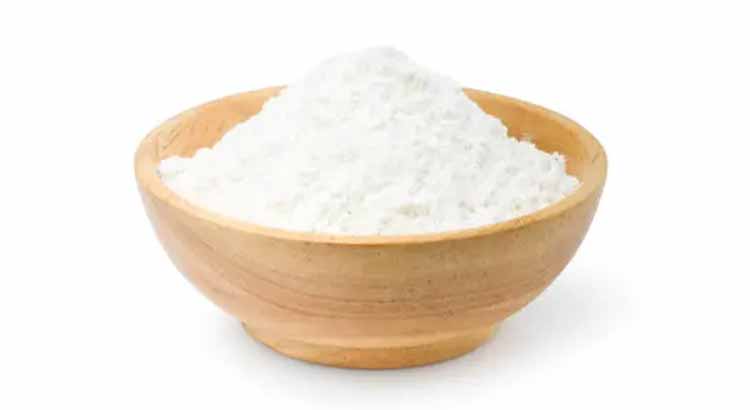Do your baking endeavors sometimes lead you to ponder how long baking powder can hold up in the frosty grip of your freezer?
On average, baking powder kept in the fridge will last up to 6 to 12 months. Proper storage is key. A sealed container in a cool, dry place helps maintain its potency and effectiveness, ensuring your baked goods rise to the occasion.
Curious to learn more about preserving the magic that makes your treats fluffy and fabulous? Discover the secrets behind proper storage and how to tell if your baking powder has gone past its prime. Unveil the frosty truths and keep your baking game as fresh as your ingredients!
Baking Powder Shelf Life
Baking powder – that magical ingredient that makes your baked goods light and fluffy. But have you ever wondered how long this essential component can survive the icy grasp of your freezer? Let’s dive right in and uncover the frozen truth.
When stashed in the fridge, baking powder typically holds its potency for 6 to 12 months. To ensure your recipes rise to the occasion, store it in an airtight container away from heat and moisture. This simple step helps maintain its effectiveness, so you can enjoy consistent results with your muffins, pancakes, and more.
How to Make It Last Longer
Now that you’re armed with the knowledge of baking powder’s lifespan, let’s explore some tips to maximize its longevity and keep your baked creations at their finest.
Choose the Right Storage
Proper storage is the key to extending baking powder’s shelf life. Opt for an airtight container to shield it from moisture and odors. Keep it in a cool, dry place, away from direct sunlight and any heat sources. This will help prevent clumping and maintain its potency over time.
Perform the Testing Ritual
Is your baking powder still good to go? Performing a simple test before use can save your recipe from disaster. Add a teaspoon of baking powder to a cup of hot water. If it fizzes vigorously, it’s still good. If the reaction is weak or nonexistent, it’s time to bid farewell to your old stash and grab a fresh batch.
Freeze Wisely
If you’re considering the freezer for long-term storage, proceed with caution. While freezing baking powder won’t necessarily ruin it, moisture can seep in when it’s exposed to fluctuating temperatures. If you do choose the freezer route, make sure it’s in an airtight container, and be prepared for potential changes in its effectiveness.
Embrace the Baking Adventure
With your newly gained knowledge, you’re ready to venture into the world of baking armed with fresh baking powder. The secret ingredient to success? Storing it properly and knowing when to bid adieu to the old. So, dust off those mixing bowls and whip up some delectable treats – your perfectly risen creations await!
Substitutes
Alright, let’s talk about substitutes – those clever alternatives that come to the rescue when your baking powder supply runs dry. Whether you’ve forgotten to stock up or you’re looking for a more natural option, there are a few tricks up your sleeve.
Baking Soda and Acid
When baking powder is scarce, you can whip up a substitute using baking soda and an acid like cream of tartar. Mix 1/4 teaspoon of baking soda with 1/2 teaspoon of cream of tartar to replace 1 teaspoon of baking powder. This combo works its magic by releasing carbon dioxide when exposed to moisture and heat, giving your goodies a lift.
Yogurt or Buttermilk
Yogurt and buttermilk are more than just delicious additions to your breakfast. They can also stand in for baking powder. Replace 1 teaspoon of baking powder with 1/2 cup of yogurt or buttermilk. The natural acidity in these dairy products helps create the reaction needed for your treats to rise.
Lemon Juice and Baking Soda
Got lemons? You’ve got a backup for baking powder. Combine 1/2 teaspoon of lemon juice with 1/4 teaspoon of baking soda to replace 1 teaspoon of baking powder. This zesty solution mimics the acid-base reaction, ensuring your baked goods achieve that sought-after fluffiness.
Self-Rising Flour
If your pantry boasts self-rising flour, you’re in luck. This flour blend already contains baking powder, so you can use it as a substitute in recipes that call for both flour and baking powder. Just remember to adjust the additional baking powder in your recipe accordingly.
Keep in Mind
While these substitutes work in a pinch, they may alter the flavor or texture of your final product. It’s always a good idea to experiment with small batches before committing to a larger batch of goodies. Additionally, since these substitutions involve different ingredients and reactions, the results might vary based on your recipe.
Final Thoughts
As we come to the end of our baking powder exploration, let’s recap the key takeaways that will elevate your baking game.
1. Store Smartly: Proper storage is the unsung hero of baking powder longevity. An airtight container in a cool, dry place can make all the difference between fluffy triumphs and flat disappointments. Remember, moisture and heat are your enemies – keep them at bay for best results.
2. Test Before You Mix: A quick test can save your baked creations from falling flat. When in doubt, mix a teaspoon of baking powder with hot water and watch for the fizz. A vigorous reaction means your baking powder is ready to go, while a lackluster show suggests it’s time for a fresher batch.
3. Substitution Magic: When baking powder is scarce, substitutes come to the rescue. Whether it’s the dynamic duo of baking soda and acid, the tangy goodness of yogurt, or the zesty charm of lemon juice, there’s a solution for every baking dilemma. Just remember that these alternatives can introduce their own twists to your treats.
4. Embrace the Experiment: Baking isn’t just a recipe – it’s an adventure. Don’t be afraid to swap, substitute, and tweak. Every mishap is a lesson, and every triumph is a celebration. The joy of baking lies in the process, the learning, and the delightful surprises that come out of your oven.
So there you have it – the frozen truth about baking powder’s shelf life, the art of extending its longevity, and the magic of substitutions. Armed with these insights, you’re ready to embark on a baking journey filled with flavor, fluffiness, and fun. Whether you’re a seasoned baker or just starting out, remember that every batch is a chance to learn, create, and savor the delicious results.
Stay curious, keep experimenting, and let your creativity shine through your oven’s door. From muffins to cakes, pancakes to biscuits – your kitchen is a canvas, and baking powder is your brush. Happy baking!
FAQ
Let’s address some of the common questions that may have popped up during our baking powder adventure.
Can I use expired baking powder? Using expired baking powder can lead to disappointing results. The leavening power diminishes over time, affecting the rise and texture of your baked goods. When in doubt, perform the trusty hot water test. If it doesn’t fizz energetically, it’s time to bid farewell.
Can I store baking powder in the freezer? While freezing baking powder won’t necessarily ruin it, moisture can sneak in as it’s exposed to changing temperatures. If you choose the freezer route, ensure it’s in an airtight container. However, for best results, stick to storing it in a cool, dry spot away from temperature fluctuations.
Why does my baking powder clump? Baking powder can clump due to moisture exposure. To prevent this, keep it in an airtight container and avoid using a damp spoon to scoop it out. If clumps do form, break them apart with a fork before using the baking powder in your recipe.
What’s the difference between baking powder and baking soda? Baking soda needs an acidic ingredient to work, releasing carbon dioxide and causing baked goods to rise. Baking powder, on the other hand, contains both an acid and a base, allowing it to work without needing an additional acidic ingredient. It’s like a one-stop leavening shop!
Can I substitute baking powder for baking soda? While they have different roles, you can use them interchangeably with some adjustments. If a recipe calls for baking soda and you only have baking powder, use three times the amount of baking powder to match the leavening power of baking soda.
Is double-acting baking powder better? Double-acting baking powder releases gas in two stages: first when mixed with a liquid, and then when exposed to heat. This can result in a more controlled rise and better texture in baked goods. However, single-acting baking powder is still effective and suitable for most recipes.
What if my baked goods taste metallic? If your treats have a metallic aftertaste, it could be due to the aluminum content in some baking powders. To avoid this, look for aluminum-free baking powder. You can also try experimenting with different brands to find one that suits your taste.
Can I make my own baking powder? Absolutely! If you’re in a bind, mix 1 part baking soda with 2 parts cream of tartar to create your own baking powder. Just remember that homemade versions might have a slightly different flavor profile than commercial ones.
Why did my cake not rise? Several factors can lead to a flat cake, including expired baking powder, incorrect measurements, overmixing, or an oven temperature that’s too low. Double-check your ingredients, follow the recipe closely, and ensure your baking powder is still active for that perfect rise.
Can I use baking powder for cleaning? Baking powder’s leavening properties can be handy for cleaning too! Its gentle abrasive nature makes it effective for scrubbing surfaces. Just make sure not to mix it up with baking soda – they might be siblings in the kitchen, but they have different roles when it comes to cleaning.
Armed with these answers, you’re ready to tackle any baking powder challenge that comes your way. Remember, baking is a delightful blend of science and art, and every step you take in the kitchen is a chance to create something wonderful. Keep those questions coming, keep experimenting, and keep delighting in the magic of baking!

